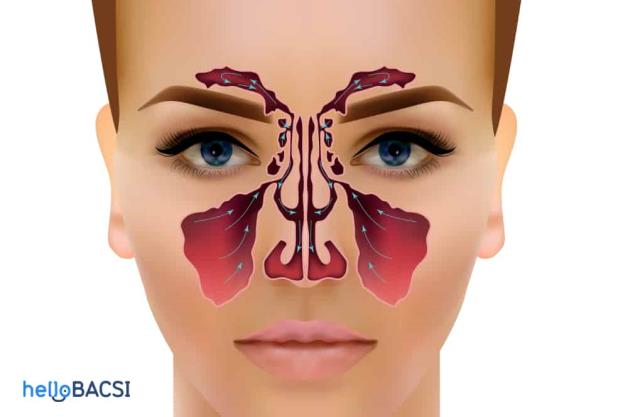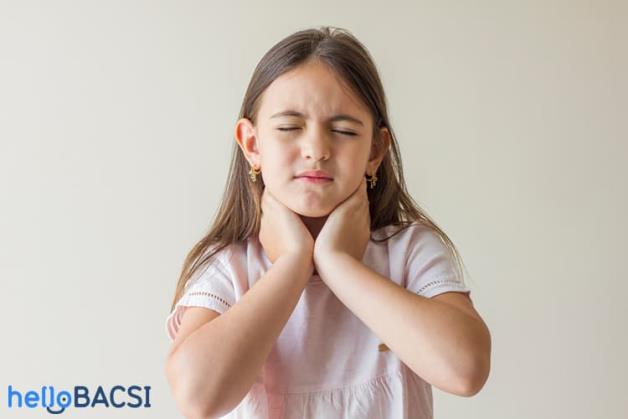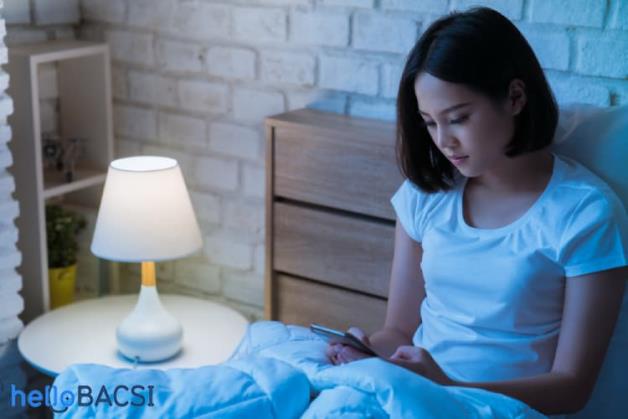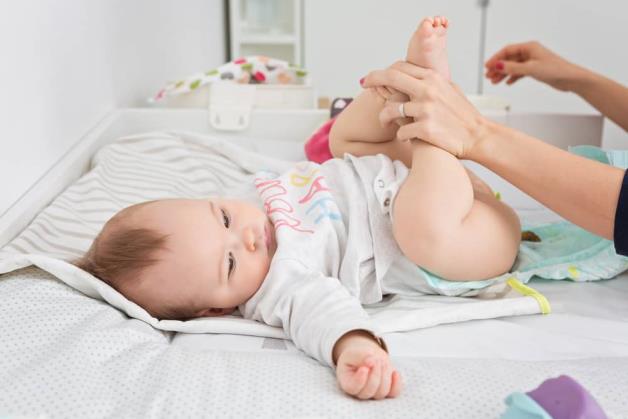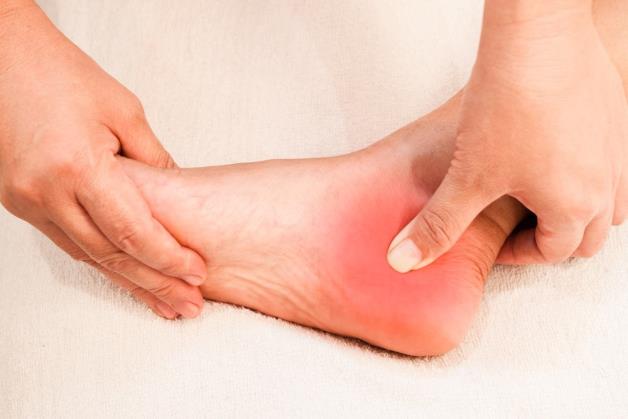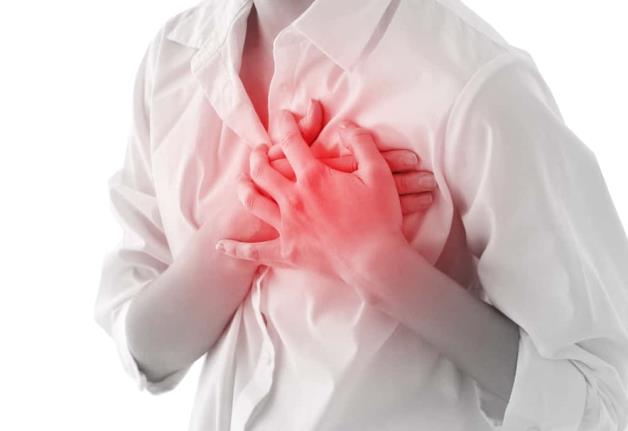Some typical symptoms of dengue in children can be recognized early such as: sudden high fever, headache, vomiting, rash. Young children are at high risk of dengue fever if they live in an environment with lots of stagnant water. These are favorable conditions for the breeding of midges, which infect the dengue virus and cause dengue fever.
Dengue fever is a dangerous infectious disease that often breaks out in the rainy season. The disease often occurs in children and there is no specific treatment, the treatment almost only reduces the symptoms of the disease, anti-shock. Mild infections can clear up on their own after a week.
In this article, SignsSymptomsList.com will point out the symptoms of dengue fever in children so that you can easily recognize them in order to promptly detect and treat if your baby is ill.
Symptoms of dengue fever in children
Children with dengue fever often have a rather complicated course. The onset of the disease is often quite sudden, the disease can rapidly change from mild to severe through the following 3 stages:
Symptoms of dengue fever in children usually begin to appear 4-6 days after the baby is infected with the virus that causes the disease. Children with dengue fever often have a rather complicated course. The onset of the disease is often quite sudden, the disease can rapidly change from mild to severe through the following 3 stages:
1. Early stage (initiation phase)
The typical symptom of dengue fever in children in the early stage of onset is a sudden, persistent high fever above 38°C. Therefore, at this stage, parents often think that their child has the flu, sore throat, virus or respiratory infection...
Symptoms of dengue fever in young children will have additional symptoms of irritability, irritability, and frequent crying. With older children, the baby may have a headache, show loss of appetite, have signs of nausea, and have petechiae appear around the pores under the skin's surface. In addition, children also have symptoms such as: muscle and joint pain, pain in the eye sockets, so they often rub their eyes, bleeding gums or nosebleeds. Especially at this stage, some children will have gastrointestinal bleeding, vomiting or bloody stools.
2. Critical period
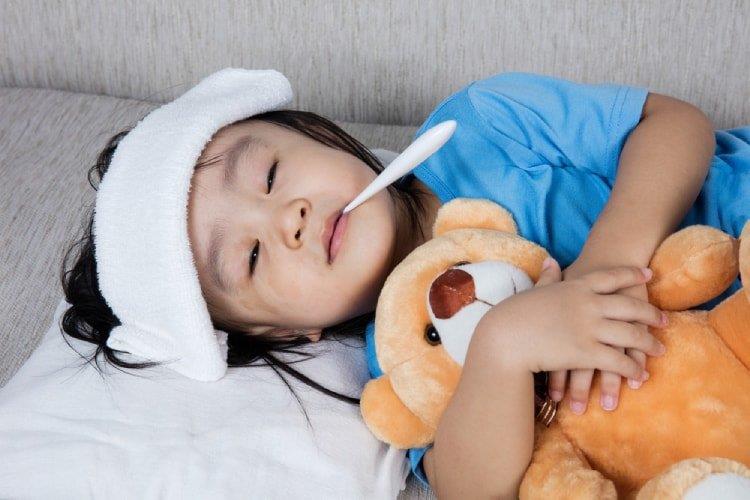
After the initial phase, children with dengue fever will enter the critical phase. This stage usually falls around 3-7 days after the child gets sick. At this time, the virus that causes the disease has weakened the child's immune system and if the blood test is done, the baby's white blood cell and platelet count has decreased significantly...
In the critical stage, a child with dengue fever may still have a fever or have gone into remission and have hemoptysis (massive leakage of plasma from the blood) which may cause the child to have typical dengue symptoms such as: :
- Pleural effusion causes the baby's abdomen to swell
- Severe bleeding on the front of the legs, the insides of the arms, abdomen, thighs, ribs, mucous membranes...
- Swollen eye socket
- Blood in urine
- Nose bleeds, bleeding gums
- Hypotension
- Head and limbs feel cold to the touch
- Struggling, lethargic
- Fast, weak pulse
- Urinating less
- Shock.
At this critical stage, if not treated in time, the child can fall into serious bleeding and cardiovascular collapse, which can easily lead to death. It should be noted that not all children with this disease will have bleeding symptoms. Therefore, even if the baby does not show signs of bleeding under the skin, the baby is still entering a dangerous stage, with the risk of serious health effects, even death.
If you notice that your child shows signs of lethargy, hypothermia, or low blood pressure, take him to the emergency room immediately. During this period, the baby's platelet count will drop sharply, in severe cases, there may be a blood clotting disorder, a very serious condition.
3. Recovery phase
This is the stage when the child gradually recovers with proper care and timely treatment. After the critical period about 48-72 hours, the baby will enter the recovery phase. At this stage, your child will have signs like this:
- Baby starts to cool down
- Feeling hungry, thirsty
- Blood pressure is more stable
- Urinating more than before
- Blood tests show an increased number of platelets and white blood cells
How to treat dengue fever for children at home
When you notice that your baby has signs of dengue fever, you need to take your child to the hospital for timely examination, diagnosis and treatment. If the symptoms of dengue fever in a child become severe, the doctors will immediately send the child to the hospital for timely treatment. In case your child has a mild illness, the doctor will treat him as an outpatient and guide you on how to care for your baby with dengue at home. When caring for a sick child at home, you should:
- Check the child's temperature and closely monitor the baby for timely treatment if the disease worsens
- Give your child fever-reducing medicine according to the doctor's instructions (for young children should take paracetamol, absolutely do not use aspirin or ibuprofen).
- Let your child rest, limit exercise so that he recovers quickly
- Encourage your child to drink plenty of water, dry sea water (to replenish electrolytes), fruit juices (orange juice, lemon, coconut, etc.)
- Give your baby easy-to-digest, liquid, nutritionally balanced foods and should divide meals. Avoid eating greasy foods (fried foods), hot spicy …
- To avoid confusion with gastrointestinal bleeding, you should not give your baby foods or drinks that are dark in color (chocolate, blood, beets, black beans, red beans, etc.)
While taking care of your baby at home, if you notice that your child has symptoms such as:
- Struggling, sluggish
- Abdominal pain with worsening symptoms
- Congestive skin
- Cold feet
- Sudden, persistent vomiting
- Sudden gastrointestinal bleeding.
How to prevent dengue fever
Currently, in Vietnam, there is no vaccine to prevent dengue fever and no specific treatment for the disease. Therefore, the best way to prevent dengue is to avoid mosquito bites and actively kill larvae (larvae), mosquitoes. To prevent your child from getting sick, you need to pay attention to some basic issues:
- Do not let your baby play near stagnant ponds, places with lots of trees, dark corners, especially in the early morning or when it's dark.
- Dress your child in light-colored clothes, long-sleeved shirts, and long pants when playing outdoors or early in the morning or late in the evening
- Sleep under the net (curtain) even during the day
- Apply mosquito repellent at times when mosquitoes are most active
- Use electric rackets, mosquito repellent, mosquito incense, essential oils to repel mosquitoes
- Regularly clean the house, especially places such as under tables, under cabinets, and bookshelves so that mosquitoes have no place to hide.
- If someone in the family is sick, all family members must sleep under mosquito nets, isolate the sick person to avoid mosquito bites and transmit the virus to others.

You can eliminate mosquito breeding grounds, kill larvae (larvae) by:
- Regularly change the water for flower vases and aquatic plants
- Add salt to the water bowls at the bottom of the cupboards
- Cover water containers to prevent mosquitoes from entering and laying eggs
- Release guppies, perch... into large water containers (tanks, wells, jars, jars...) to kill larvae or larvae.
- Clearing gutters
- Collect and destroy waste items in the house and around living areas such as bottles, cans, bottle fragments, broken jars, coconut shells, tires, etc., especially after a rainy day.
- Clean the house, around the house, turn the unused water containers upside down.
In addition, when the local government and health sector organize sprays of insecticides to prevent and control dengue outbreaks, you should create favorable conditions for them to perform their duties.
